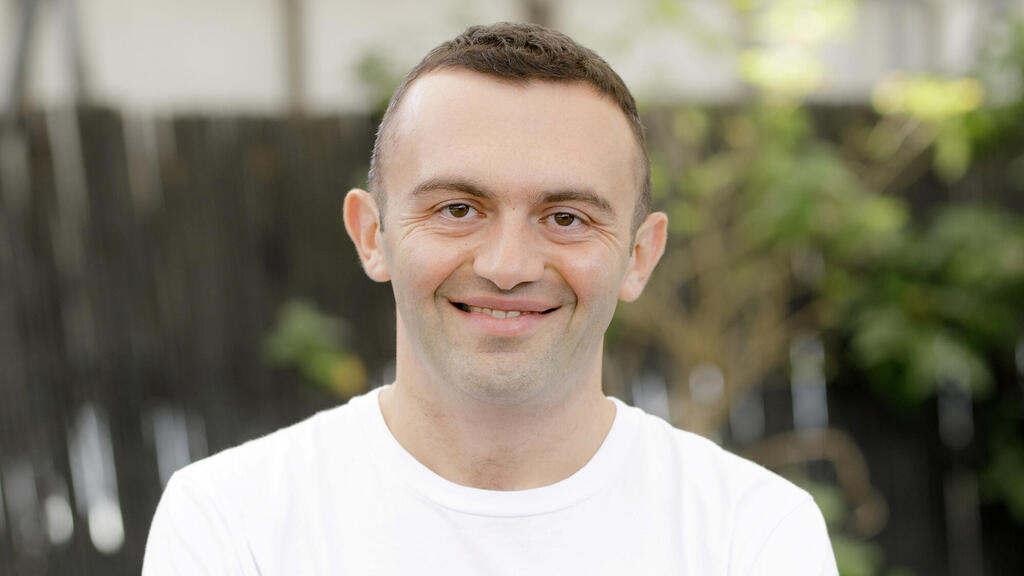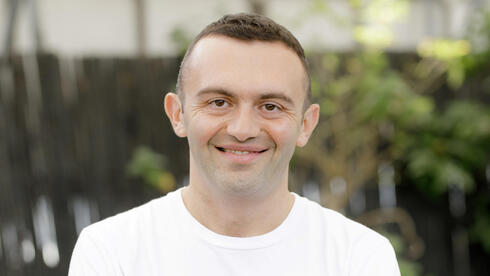
The story behind the Israeli startup that developed one of the world's most popular sports results apps
The 365Scores application has more than 20 million users around the world who have received more than a billion notifications from it - mainly about the results of their favorite team
The startup developing one of the four most popular sports results apps in the world is located in an old building above a bakery in central Tel Aviv, as well as the building opposite it. The 365Scores application has more than 20 million users around the world who have received more than a billion notifications from it - mainly about the results of their favorite team.
The app started with four founders, who in a rather rare way have remained together and still work in the company they founded: Ami Serkis (39) the CEO; Roei Aharoni (37), CTO; Yevgeny Brener (36), the CRO; and Roy Hayumi (36), VP of Research and Development.
The story of 365Scores begins at Mamram, the first computer unit founded in the IDF. "In the army we were responsible for Israel's warning system," says Brener. "We worked together with the Home Front Command and solved different problems. When we started the service, the country was divided into ten regions. When a missile was sent to the central region, a million people had to go into shelters in the central region. It was clear that the future threat includes 100 missiles a day and not one missile. We had to divide the country into hundreds or thousands of areas so that when our enemies fire a missile into the Florentine neighborhood, then only those in the Florentine neighborhood will enter the shelters. And you need to know that in milliseconds and send out the alert."
The issue of being notified of events - good events, not events which includes the missiles of Hezbollah or Hamas - was also the beginning of the application, which updates the user with results and news from the world of sports in real time. "A big part of this product is the notification of the results from around the world," says Brener. "Our advantage, what gives us the edge, is we have the fastest collection, fast filtering, fast distribution. And that's what we did in the army. We have the data from all the fields. Ami, the CEO of the company, was our commander. And he had the idea. He was also a former Maccabi Haifa youth player."
Brener explained the problem the company set out to solve. "In 2010 we realized that we wanted to establish 365. The problem we identified was in the area of personalization - the content editor would select the content on the website for you. The second thing was real-time notifications. You had to refresh the website to know the status of the results. The first product was a chrome extension, so we gave the possibility to receive the notifications you choose - you follow leagues and teams you choose - even players.
"We worked for two years without funding in an office in Rishon Lezion, and after creating the initial product, we raised NIS 50,000 (approximately $14,000) from angel investor Tal Elyashiv. The market is crazy and global, and was waiting for a product with personalization of notifications."
The other investments came from the Israeli high-tech investment fund Cedar, which is the leading investor in the company, and the Russian investment fund Leta Capital. The money was invested in the development of the mobile app, and more than 99% of users use the app on mobile. Upon entering the application, each user gets the option to choose the notifications - from which leagues, teams and even players. This contributes to the user but also to the application. "Once we understand the fans, most of whom are men aged 18 to 34, we also know when they are happier and more open to receiving offers," says Brener. "This is of great interest to advertisers - because we know that after a victory for their team, a user will be more open to receiving an interesting offer from an advertiser. More than that, we are one of the most rated apps in the world. Why? Because we ask the user to rate us when we know they are happy. So it’s the perfect timing for us to get a rating."
And so much data and preferences of outsiders can also provide some interesting insights about soccer fans in the world in general and in Israel in particular. For example, Israelis' daily interaction level (6.93 logins to the application per day) is higher than the rest of the world: 28% more than Europeans (5.41) and 25% more than the rest of the world (5.53). This is related to the interest of the Israeli fan in their local league, but also in other leagues and Israeli players in other leagues. The Israelis follow 11 leagues and 25 teams on average. In Europe the average is 13 leagues and 21 teams, and in the world: 16 leagues and 28 teams on average.
Also, the average user in Israel is a bigger "researcher" than the European user. Of the users who log into the application every day, 14.6% of Israelis log into the statistics and data pages. This is almost three times more than the rest of the world (5.1%).
Related articles:
What can be learned about fan patterns through the app? In Israel and in the world, the three leading teams are Real Madrid (58% of users registered for notifications selected Real Madrid), Barcelona (57%) and Liverpool (45%). In the world these are also the most followed teams - Real Madrid (56%), Barcelona (53%) and Liverpool (47%). In Israel and worldwide - the three leading leagues that are not the Champions League (the most followed - 75% of users) are: Premier League, La Liga, and Serie A.
And what about the future of results apps? "All our efforts are focused on improving the product," Brener says. "We don't spend a shekel on advertising because a user who is satisfied with using our application is our best advertisement. He will tell his friend, and then 95% of users come to us organically - by word of mouth. Also, many of our features come from feedback from users. People watch football with our app so they can know what happened in 10 other games. And we are not afraid of competition because producing a new app now that can compete is difficult. Our opponents are veterans and it is difficult to do something truly unique and groundbreaking."
